The Scholarship Program
The Japan-IMF Scholarship Program for Advanced Studies (JISP) is a two-year program intended to help Japanese nationals obtaining Ph.D. degrees in macroeconomics and preparing them to work as economists at the International Monetary Fund (IMF).
The scholarship is funded by the government of Japan and administered by the IMF's Capacity Development (ICD) with assistance from the Institute of International Education (IIE).
Up to four scholarships are awarded annually on a competitive basis to students with a record of high academic achievement. All JISP scholars are required to apply to the IMF's Economist Program (EP) upon completion of their doctoral studies and to accept an EP position if offered. Scholars who do not comply with this condition will be asked to repay the scholarship cost.
Please note that the IMF will not be able to accommodate all JISP scholars who apply for employment at the Fund since there are many applicants for each available position and the selection process is very competitive.
Eligibility & Application Procedure
To be eligible, an applicant must be:
- A Japanese citizen.
- Able to obtain a Ph.D. before age 34.
- Studying at, or applying to, a Ph.D. program in macroeconomics or economic-related fields including finance, labor economics, development economics, gender, and climate at a university outside of Japan. Only universities with a strong doctoral program in macroeconomics are eligible.
- Entering the 1st, 2nd or 3rd year of the Ph.D. program.
The application
is available online at www.iie.org/jisp. It must be completed in English and include the following:- A personal statement focusing on the applicant's background, career goals, and interest in working as an IMF economist;
- A complete university transcript for the applicant's prior studies and, if already a graduate student, a current university transcript;
- GRE and TOEFL or IELTS scores;
- A copy of one application to a Ph.D. program; and
- Two reference letters.
The deadline for receipt of scholarship applications is December 31, 2024.
Scholarships are awarded in the spring, for studies starting in the fall of that same year. Candidates must apply directly to universities for admission.
Please note that no exceptions can be made regarding the scholar's nationality, university location, or field of study.
Research Analyst Program (RAP)
Potential Japanese applicants interested in pursuing a career with the IMF are encouraged to apply to the RAP before seeking the Japan-IMF Scholarship. This paid RAP position provides valuable research experience, strengthening applicants’ profiles for future Ph.D. studies and career opportunities. RAP assignments are recognized as predoc experience, adding to candidates’ qualifications.
During the RAP assignment, applicants undergo evaluation and interviews. Following this, they may receive a conditional Japan-IMF Scholarship offer if they:
- Secure admission to a reputable Ph.D. program.
- Express intent and commitment to apply for a position in the IMF’s Economist Program (EP) after their Ph.D. and are willing to accept if selected.
- Meet the age requirement for entry into the EP, which is below 34 years old.
Once approved for the Japan-IMF Scholarship, applicants can indicate the secured funding assurance on their Ph.D. applications.
Japanese applicants seeking a predoc program with Ph.D. funding should:
- Submit an application to the RAP.
- Express their interest by emailing the Japan-IMF Scholarship (japanimfscholarship@imf.org).
Academic Program
- JISP scholars must continue an approved course of study and maintain high academic standards, passing all mandatory and qualifying examinations.
- Scholars usually complete the majority of the course work in the first two years of Ph.D., with the remainder of their studies devoted to researching and writing a dissertation.
- Dissertation subjects should focus on macroeconomics and topics relevant to the work of the IMF, such as: public finance, monetary economics, international economics, poverty issues, political economy, or econometrics.
- Selected scholars must attend a 2-day orientation program at the IMF in Washington D.C., shortly before they begin studies at their respective university.
- JISP scholars are required to complete a 10-13 week paid summer internship at the IMF in the year before obtaining their doctorate. JISP interns work in one of the IMF departments on a wide range of topical and regional assignments.
Benefits
The JISP covers reasonable expenses for two years of graduate study including:
- Full university tuition and fees;
- Medical insurance;
- Monthly living allowance;
- Selected travel expenses; and
- Paid summer internship.
To cover the remaining years of study, JISP scholars are expected to secure another source of funding, usually through Research or Teaching Assistantship at their university.
Conditions
By accepting the JISP award, scholars commit to:
- Study at a university that is located outside of Japan and has a strong Ph.D. program in macroeconomics;
- Remain a full-time graduate student in a Ph.D. program in macroeconomics for the duration of the two-year scholarship; maintain high academic performance (minimum average of B); and pass all required qualifying exams;
- Complete a 10–13 week paid internship at the IMF; and
- Apply to the IMF's Economist Program during the last year of Ph.D. or later but before the age of 34 and accept IMF employment offer if one is extended.
Scholars who do not comply with the above conditions will be required to repay the JISP award.
Testimonials
Six JISP scholars joined the Fund as summer interns in 2019. Some of them shared with us their takeaways and best experiences during the internship.

Yoko Shibuya |
I was amazed by IMF’s open-minded culture to new technologies. My project team consisted of two data scientists and economists. We worked together closely and integrated new text analysis technique with economic framework to answer important economic questions. |

Mina Taniguchi |
By working on a research project with economists at the Fund, I learned it is important to have different angles on the issues in the research project. Knowing policy maker’s point of views especially helped me to address the research issues because they are sometimes overlooked in academia but are sometimes connected to an important implication of the research. The internship also gave me an opportunity to know how each department functions in the Fund, which was very helpful to understand the Fund. |
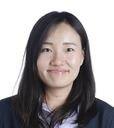
Mai Hakamada |
The best experience I had during the internship was the research project itself. I found the topic of the project; theoretically and empirically untangling the mechanism of lost recovery was challenging but very important from the perspective of both policy implications and academics. Since my advisors were very experienced and kind, working on research with them was a very precious experience as a researcher in terms of learning the way of generating and demonstrating the idea and observations. Besides, through the internship, I noticed unique advantages which IMF has. For example, IMF has unique and various resources of cumulated knowledge and database. Every economist is willing to share their knowledge and experiences, which will make projects and research efficient and productive. |
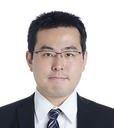
Toshiaki Komatsu |
Through interacting with amazing scholars at the Fund who possess both academic rigor and hands-on policy experience, I was able to learn how we can apply our graduate training in economics to the formation of actual economic policies around the world. After spending years in academia, I found it very exciting and refreshing to witness this mixture of research and policymaking, which we can hardly experience elsewhere. |
Testimonials from JISP scholars who attended the summer internship in past years:

Ryoko Ito |
The best experience for me was meeting very talented and inspiring people through the work at the Fund. This experience was refreshing and eye-opening to me, since networking opportunities in academia were relatively limited. This was also a good reminder that sharing knowledge and working with others can improve our productivity. |
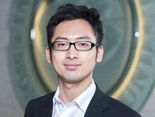
Shigeki Isogai |
By looking into a specific region (in my case, sub-Saharan Africa), I learned that each country has its own characteristics and issues. Therefore, for policy work, there is no “one-fits-for-all” solution, and that precise knowledge on historical and institutional aspects of the country is needed. |
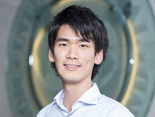
Ayumu Ken Kikkawa
|
All the economists that I talked to had deep understandings on the practical side of economics. I felt this most strongly during my presentation in a seminar, when I received questions on how my model fit into countries with specific characteristics. This is a great experience one could hardly have in the academic world. Coming from academia where people work on their own research in near isolation, every moment I had here at the Fund was very exciting. |
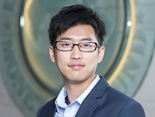
Akira Sasahara |
By working on a project during my internship, I learned about the big agricultural productivity gaps across countries and the major contributors for the gaps. Staff in my division are doing very important analyses, which play a role in shaping economic policies in low-income countries. I felt I was a part of the policymaking process and it was a great experience for me. |
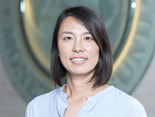
Eri Ikeda
|
My internship helped me better understand the nature and inner workings of the Fund, and reconnect me to the real world after years in academia. My best experience during the internship was meeting and working with so many practitioners at the Fund. I learned a lot from their experiences, ways of thinking, and views on important issues. Discussions here following the Greek debt crisis provided me with a window into the difficult and complex world of crisis management—something I had never dreamed to observe so closely. |
Contact Information
For inquiries about submitting applications, general questions, and any other information regarding applications, please e-mail the Institute of International Education (IIE) at japanimfscholarship@iie.org.


